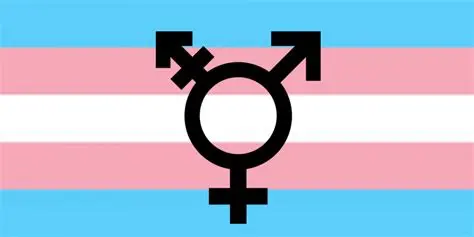My family tends to be sprinkled throughout the different levels. My wife, grandmother and son, easily number 1 in support of my transition and identity.
Many of my cousins I grew up with are level 2.
Father and stepmother are level 5 - possibly level 6 when I was a child - still figuring that one out as new traumas surface.
Everyone else hovers around 3 - 5.
Just remember, I’ll always be a level 1 for you ❤️
Level 1: completely supportive
Level 2: mostly supportive but lacking some knowledge, or some transmedicalist attitudes due to ignorance, not malignancy
Level 3: neutral, not supportive but not opposing either, or “supportive” transmedicalist
Level 4: leaning oppose, but no forceful interventions, or refuse to gende you correctly but used neutral pronouns
Level 5: misgendering, not accepting you as their daughter or son, but still pretend to be “loving” misgendered you
Level 6: disowning or physically beating or etc, most extreme measures
(Stolen, with love, from the user Cormier643 on Reddit. Felt like this was a great way to get discussions going again ❤️)
-Olivia ✌🏻


I’m not trans, but your question reminded me of something my ex told me about her family supportiveness that I wanted to share. To use your numbering scale, her family were probably 2/3, but they thought themselves to be 1. She said that even though she knew she was pretty fortunate, and that coming out hadn’t been as bad as she feared, she sometimes wondered whether it would be easier if her family were less supportive, but also were authentic in how much they supported.
The thing that really stuck with me was that she felt like she didn’t know where she stood with her family, because instead of it being a team effort where everyone is working to understand something big and still fairly new, she often had to bite her tongue when she had issues with what they said or did, having to measure her words carefully because they were liable to feeling hurt at any criticism of their behaviour.
What I mean by working as a team is that she was fairly early on in her transition and was navigating what gender dysphoria, and euphoria meant for her. If they were truly level 1 supportive, as they believed themselves to be, she’d be able to say “hey, that comment made me feel bad” without it being a While Thing, and maybe they could’ve had a productive discussion that would’ve led to an increased understanding for all.
Another side of this is that we speculated that they adjusted to consistently using the right pronouns way slower than if they just sat with their discomfort when they got it wrong and were corrected, rather than making excuses. My ex said that she never expected them to be 100% understanding and supportive right off the bat, but that she hoped they would grow into that — unfortunately, as long as they perceived themselves to be maximally supportive, there was no room for improvement.
The rough shape of this is an all too familiar pattern: people being more concerned with being considered transphobic than actually acting in ways that are harmful to trans people. It’s sad because regrettably, I used to be like that and so in them, I see alternate versions of myself — I was a queer person who very much considered myself a trans ally, without much understanding of what that actually meant because I didn’t know any trans people, often scared of saying the wrong thing, but in a self-centred way. I only grew beyond that because let myself be humbled and I chose to put in the internal work to be better, and my world is all the better for it; Intersectional solidarity is literally the main thing keeping me afloat nowadays, hope-wise.
We don’t talk much nowadays, but I hope her family have found the strength to challenge their internal biases and sit with their discomfort because this kind of improvement is uncomfortable and imo, the biggest “Level 1” thing is not treating it like a static level of supportiveness that is reached, like a max level i.e. understanding that what support is needed will change as life itself changes, and beyond the basics of “how not to be an asshole”, there is no guidebook on how to be supportive